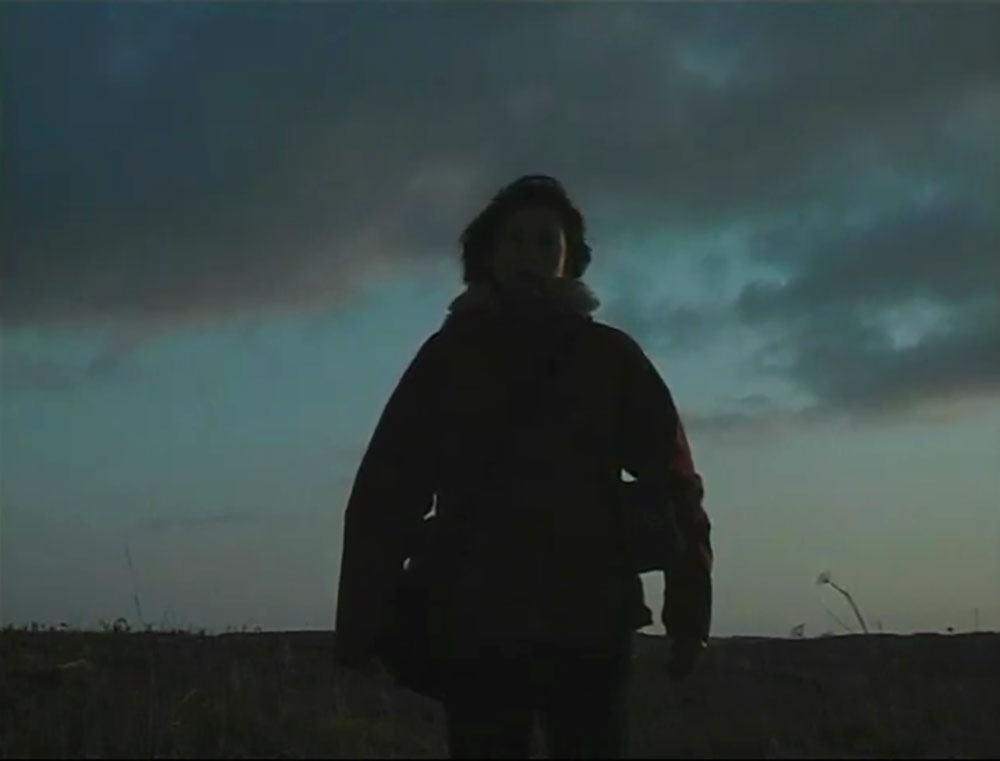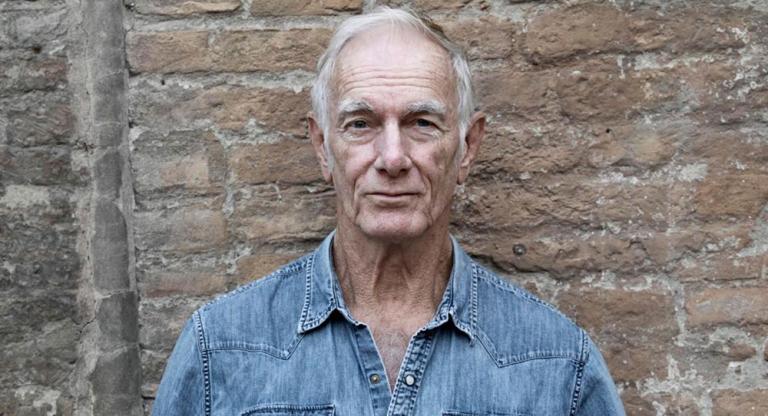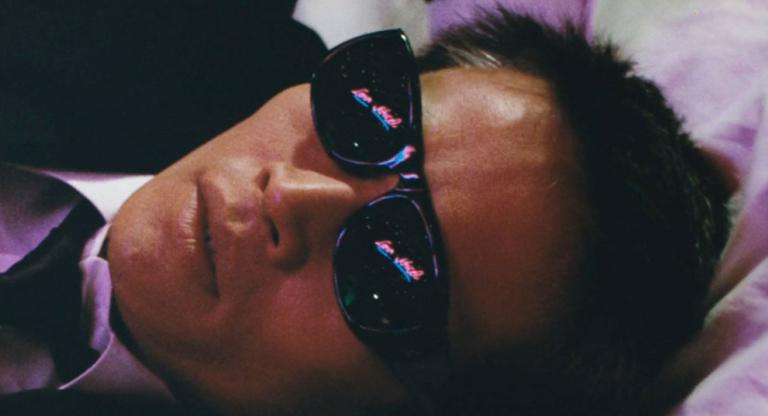Hiroyuki Matsumura’s 2009 DV feature Tochka begins with landscapes: some hills, dunes, a beach, a plain. These are landscapes that swallow and obliterate the two figures moving through them, or from which they will emerge with cosmic, paradoxically sudden slowness, at first as just one pixel among thousands. It is a winter day by the sea, and in no other film has the voluptuous devastation of a place like this been captured with such harrowing precision.
The two figures meet and talk. The setup—a man (Shun Sugata), a woman (Yoko Fujita) and a suitcase—suggests Godot. However, the conversation’s circling abstractions soon gather details of character and history, and its spareness tends toward sharpness and particularity. We begin to become aware that this is a film which, for all its readily apparent rigor, will continually change shape, breaking and reforming its rules into ephemeral new forms.
I lied. (It is a film that lies.) It does not begin there. It begins with a photo, a photo of two men getting into a plane while others look on. We will forget this. Then we will remember it, as other stubbornly ambiguous reminders of past conflicts rise to the film’s surface. Some of these appear in conversation, in reference to the concrete pillbox where that largely takes place. It was built waiting for America, “which didn’t get this far”—the Pacific theater of the absurd. But then, as the man claims, “This has got nothing to do with war.”
What has this got to do with? That’s the kind of mystery one doesn’t want to solve, though we could enjoy hunting for clues in the films of Jean-Claude Rousseau. Tochka shares the French filmmaker’s fascination with windows and reproductions, how the mere presence of a figure looking through a frame will bloom into melancholy, uncanny fiction. And it is, like La Vallée close (1995), Rousseau’s last film on Super 8 before he migrated to DV, a story about an eternal return to reframe an aperture onto the void, about memories of a lover and the sound of roaring water.
That sound, what Rousseau calls a “sound material,” is the secret voice of Tochka. Ever present, always recorded in sync with the image, it changes with every cut, every variation of the film’s dazzling, elaborate weave of shot/reverse-shot structures. There is a violence to this discontinuous continuity, one that is both frightening and invigorating, and that speaks of the same things that the woman does, to herself, as she later retraces her initial steps:
“... the weird desire of wanting to prolong this unease for as long as I could… that period of time I ceased to be a child… a memory of death… it’s like home.”
Tochka screens tonight, April 16, and throughout the month at Spectacle Theater



